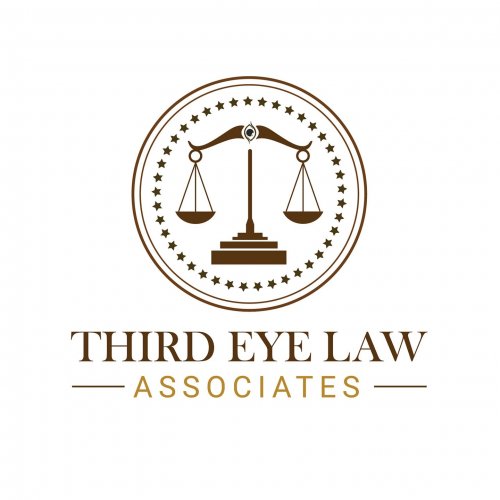Best Cannabis Law Lawyers in Nepal
Share your needs with us, get contacted by law firms.
Free. Takes 2 min.
Or refine your search by selecting a city:
List of the best lawyers in Nepal
About Cannabis Law in Nepal
Cannabis has a long historical association with Nepal, where it has been used traditionally for religious and medicinal purposes. However, modern laws have classified cannabis as an illegal substance, aligning with international drug control treaties. Despite its cultural significance, cannabis trade, cultivation, and consumption are regulated under strict national and international policies. Recent years have seen discussions regarding its potential legalization or decriminalization, although no substantial legal reforms have yet taken place.
Why You May Need a Lawyer
If you are involved with cannabis in Nepal, whether as an entrepreneur, user, or researcher, there may be circumstances where legal help becomes necessary. Here are common scenarios that might require legal assistance:
- Arrest or charges related to possession, cultivation, or distribution of cannabis.
- Involvement in or initiation of business ventures focusing on cannabis production or research.
- Legal documentation and compliance for research or medicinal use.
- Petitions or advocacy for policy change regarding cannabis laws.
- International matters, such as import/export issues or expatriate legal cases.
Local Laws Overview
The Narcotic Drugs (Control) Act, 1976 governs cannabis control in Nepal. Key points include:
- Possession: Illegal, with penalties varying based on quantity.
- Cultivation: Unauthorized cultivation is punishable by fines and imprisonment.
- Trade and Distribution: Any form of unauthorized trafficking is subject to severe legal consequences.
- Medicinal Use: Limited exceptions exist for authorized medicinal and scientific uses, but these are tightly regulated.
Frequently Asked Questions
1. Is cannabis legal in Nepal?
No, cannabis remains illegal in Nepal, but discussions about legalization have been ongoing.
2. Can I cultivate cannabis for personal use?
No, unauthorized cultivation of cannabis is illegal in Nepal.
3. What are the penalties for possession of cannabis?
Penalties can include fines and imprisonment, with severity depending on the amount possessed.
4. Are there any exceptions for medical cannabis?
There are strict regulations and limited exceptions for medicinal and research purposes, but access is highly restricted.
5. How are cannabis-related crimes prosecuted?
Cannabis-related offences are prosecuted under the Narcotic Drugs (Control) Act, which imposes heavy penalties.
6. Can tourists use cannabis legally in Nepal?
No, tourists are also subject to Nepali cannabis laws and can face legal consequences if caught.
7. What is the process for obtaining legal help if arrested?
Contact a lawyer familiar with Nepali drug laws immediately for guidance and representation.
8. Can businesses legally sell cannabis products in Nepal?
No, selling cannabis products without authorization remains illegal.
9. Is natural cannabis less strictly regulated?
No, all forms of cannabis, natural or otherwise, are subject to the same legal restrictions.
10. Are there advocacy groups working towards cannabis legalization?
Yes, several advocacy groups and organizations are working towards discussing and reevaluating cannabis laws in Nepal.
Additional Resources
For further information and assistance, consider reaching out to:
- The Nepal Police for legal enforcement queries regarding cannabis.
- Legal aid organizations specializing in drug-related cases.
- International drug policy advocacy organizations for support and advice.
- Local non-governmental organizations that focus on health and legal reform.
Next Steps
If you require legal assistance related to cannabis in Nepal, here are some steps to follow:
- Assess your situation to determine the specific legal needs you have.
- Reach out to a legal professional with experience in cannabis law in Nepal.
- Prepare documentation and any evidence relevant to your case.
- Stay informed about developments in Nepalese drug laws.
- Consider engaging in advocacy if your case involves broader policy issues.
Lawzana helps you find the best lawyers and law firms in Nepal through a curated and pre-screened list of qualified legal professionals. Our platform offers rankings and detailed profiles of attorneys and law firms, allowing you to compare based on practice areas, including Cannabis Law, experience, and client feedback.
Each profile includes a description of the firm's areas of practice, client reviews, team members and partners, year of establishment, spoken languages, office locations, contact information, social media presence, and any published articles or resources. Most firms on our platform speak English and are experienced in both local and international legal matters.
Get a quote from top-rated law firms in Nepal — quickly, securely, and without unnecessary hassle.
Disclaimer:
The information provided on this page is for general informational purposes only and does not constitute legal advice. While we strive to ensure the accuracy and relevance of the content, legal information may change over time, and interpretations of the law can vary. You should always consult with a qualified legal professional for advice specific to your situation.
We disclaim all liability for actions taken or not taken based on the content of this page. If you believe any information is incorrect or outdated, please contact us, and we will review and update it where appropriate.
Browse cannabis law law firms by city in Nepal
Refine your search by selecting a city.













